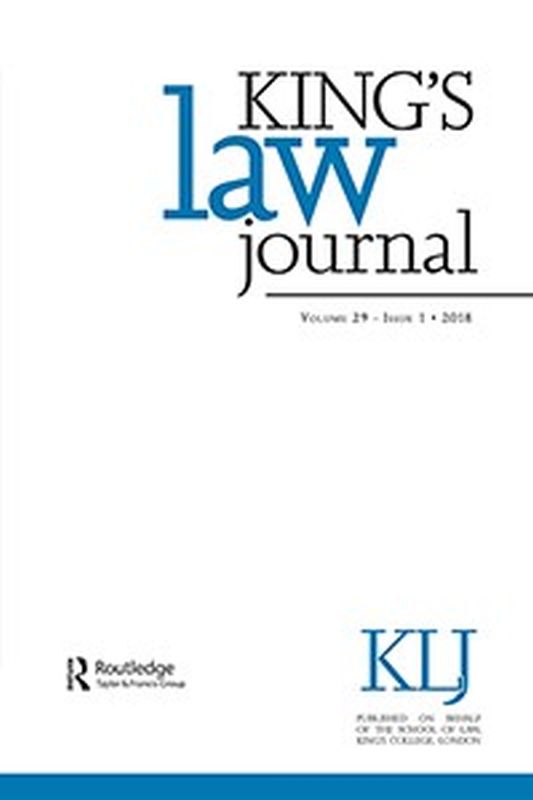Copyright or Copyleft? Wikipedia as a Turning Point for Authorship
This article considers the example of Wikipedia and the challenges it poses for UK copyright law’s notion of authorship.

1 April 2014
Publication details
Simone, Daniela; (2014). Copyright or Copyleft? Wikipedia as a Turning Point for Authorship. King's Law Journal, 25(1) pp. 102-124.
Abstract
Wikipedia, the popular online encyclopaedia, is one of the most visited websites on the internet. It is the site for a unique form of creativity that is interactive, dynamic and highly iterative. Wikipedia promotes a model of creativity that intentionally blurs the distinction between ‘reader’ and ‘writer’. It is an example of the applications which facilitate the interactive and collaborative use of the internet, which is often described as ‘Web 2.0’. Web 2.0 technology has transformed processes of cultural production by providing authors with new sources of inspiration and greatly facilitating the creation, dissemination and publication of works, thereby enabling more people than ever before to participate in creative processes. A number of commentators have observed that copyright law provides a significant impediment to much of the innovation facilitated by Web 2.0. Indeed, some claim that copyright law is at a moment of crisis, or at least in need of substantial reform as many of its concepts seem to conflict with norms and community expectations which have developed in the context of this new digital environment.
This article attempts to shine a light on one aspect of this ‘crisis’ by considering the example of Wikipedia and the challenges it poses for UK copyright law’s notion of authorship. It argues that Wikipedia stretches copyright law’s rules of subsistence to their limits because: (i) it is a perpetual work in progress; (ii) involving large-scale collaboration between people from all over the world; and (iii) it relies upon social norms which tend to be constructed in opposition to copyright’s notion of authorship insofar as this notion implies ownership and control of creative works. The reliance of Wikipedia’s model of creativity on ‘sharing’ norms defined and enforced by its community of contributors potentially calls into question the adequacy and relevance of copyright law’s conception of authorship. Copyleft licences have been adopted to solve the practical copyright difficulties that might arise from the ordinary operation of the process of collective creativity on Wikipedia.
 Close
Close

